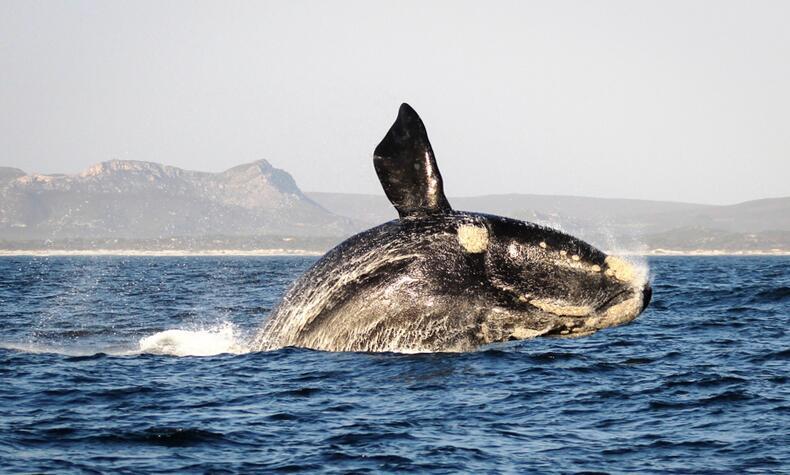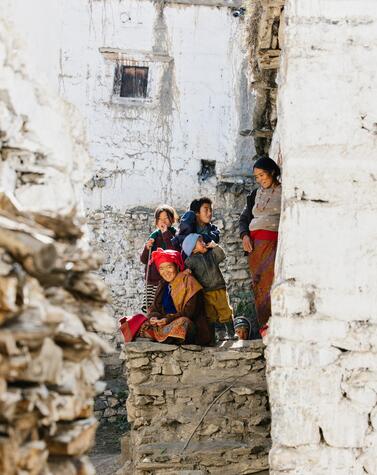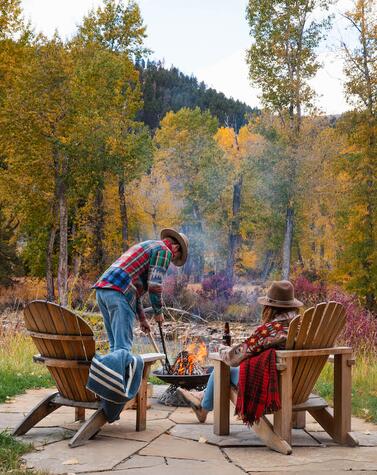Once upon a time... the Arrábida Mountains
Once upon a time, there was a manor house located in the little-known Serra da Arrábida, a Portuguese Natural Park just 40 kilometers from Lisbon. There, surrounded by Muscat and Syrah vineyards, pines, and oaks, Casa Palmela is an exclusive 5-star hotel (the only one that exists within the Park). The history of this fairytale house begins in 1630 when it belonged to the Jesuits who used it as a farm, to host the members of the congregation from the neighboring town of Setúbal when they enjoyed their vacations.
In 1889, with the expulsion of the religious groups from Portugal, the estate passed to the state and, at the end of the 19th century, it was bought by a nobleman as a gift for his daughter who was to marry the Duke of Palmela. The house remained in the hands of the same family until 1969, when it was inherited by Bernardo Holstein, Marquis of Mofalim, and grandfather of the current owner, also named Bernardo.

From 1974, the date of the famous "Carnation Revolution", until about 2000, the large Holstein family lived here and spent some of their happiest moments. In 2015, the current owner bought the house from the family and remodeled it to open it to guests as a hotel where luxury is based on local authenticity. Bernardo, along with his wife Joana, and his cousin Salvador (director of Casa Palmela), welcomes you in what is also their home with an open heart and will to help you discover not only the corners of this magical house, but an endless number of places and experiences to live and enjoy in the Serra d'Arrábida.
- Any time of the year is a good time to enjoy the peace and views of the Serra d'Arrábida from Casa Palmela. —
- Casa Palmela has 22 rooms, each one decorated in a different way. —
- The house has adjacent villas, ideal for enjoying the environment and multiple family activities. —
- From the main gallery you can see the infinite range of greens of the Natural Park.
The story of this trip to this unknown and exclusive part of Portugal is full of names. George is the skipper who takes us with his boat, departing from the port of Setúbal, to discover the wonderful coastline of the Serra d'Arrábida bay, which has, on the Troia peninsula, some of the most beautiful and unspoiled beaches in this area of Portugal. On board a boat, the perspective of the landscape and life always changes.
While tasting on board some of the best local cheeses accompanied by white wine, you'll be surprised by the school of dolphins that swim calmly alongside. There is a stable family of 40 dolphins residing in the bay.
The next day, the adventure of discovering the area awaits you. You start early in the morning to visit the Mercado do Livramento in Setúbal, one of the most beautiful in Portugal and a gastronomic experience for the senses. You are accompanied by your local guide, Vitor, who invites you to start your walk tasting a shot of "Ginjinha", a traditional sweet orujo made with cherries.
You continue your route through the market tasting some fresh oysters, just brought from the Sado River hatcheries, and some local goat cheeses accompanied by an unbeatable homemade bread and a glass of red wine. And all that without leaving the market!
- Handmade "queijos", always present in Portuguese gastronomy —
- A tasting of the traditional Ginjinha is a must during a visit to the market —
- Fresh oysters from the bay's oyster beds can be sampled at the market itself —
- The Mercado do Livramento in Setúbal is one of the most beautiful in Portugal
You decide it's time to walk around a bit and, between convents and fortresses, you learn about the traditional tiles that are part of the aesthetic beauty of the streets, houses, and buildings of Portugal. Since this industry began back in the sixteenth century, they have been made by hand. In some places they are still made, using the same technique as yesteryear, where cobalt is the main color created to maintain the traditional and unforgettable blue tiles.
Salvador Holstein explains that in ancient times the richest people had yellow tiles in their houses. This color was achieved thanks to the gold dust that Portuguese ships brought from Brazil in the XVI-XVII centuries and returned to that country with ships full of tiles and Portuguese stone.
You then return to Casa Palmela where it seems that time has stopped and dine accompanied by their owners, Joana and Bernardo who enliven your evening with all the endearing and interesting stories that are part of the house, the family, and the history of this fascinating area of Portugal.


Lisbon by sidecar
The next day, a shining sun greets you and accompanies you throughout the day in which you will discover the best of Lisbon aboard a vintage motorcycle with a sidecar. Lisbon is a city that is easy to fall in love with due to its steep streets, its tiled and colorful facades, its streetcars, its people, the imposing Tagus River, and, of course, its gastronomy.
After a mandatory stop at the famous "Fábrica de Pastéis de Belém", where you have a coffee next to what I would say is the most traditional cake in Portugal that, in that factory, has been made since 1837 based on a secret recipe that is passed down from generation to generation. You then go up to Alfama, the highest part of the city where you'll meet Elena, who will accompany you on a gastronomic tour through small neighborhood shops until you finish in the famous and vibrant "Time Out Market".


But the gastronomic cherry on top of the day is yet to come.
In the evening you approach the Chiado district, where you'll dine at the restaurant "Bairro do Avillez", owned by the prestigious Portuguese chef José Avillez, who accompanies you throughout the dinner and transmits to you his passion for Portuguese cuisine explaining the origin and preparation of the fantastic dishes that you're tasting.
The chef has different restaurants in Portugal, among them "Belcanto", the first restaurant in Lisbon with 2 Michelin stars.

The last day is reserved for getting to know the surroundings of the farm. You are accompanied by biologist Mario Carmo on a relaxing forest bath, during which he explains, for example, that there are between 30 and 40 species of orchids cataloged in the area and that Esteval, which is the name of the estate where Casa Palmela is located, comes from the name of a flower that is very abundant in the natural park.
Mario explains the project he will soon be implementing with Casa Palmela called "Arrabida Soundscapes". Mario has spent months recording the sounds of a total of 50 locations in the Sierra at different times of the day and night, in different seasons, and with different weather conditions. The goal is to place about 50 points on the trails surrounding the estate so that guests can walk around and, connect the signal with their phone's Bluetooth and discover the different sounds of each point, and explore nature through hearing.
- Biologist Mario Carmo with the famous Estevel flower, which gives its name to the farm where Casa Palmela is located. —
- You end the day with a picnic among the vineyards and under the centenary oak tree of the estate. —
- Photo: Carla Xavier. —
- Casa Palmela is full of magical nooks and crannies decorated with centuries-old tiles.
As it could not be otherwise, you end your journey through the Arrábida Mountains as you started it, in gastronomic style, with a fabulous picnic under the great oak tree that, for decades, has been the true guardian of Casa Palmela.





























